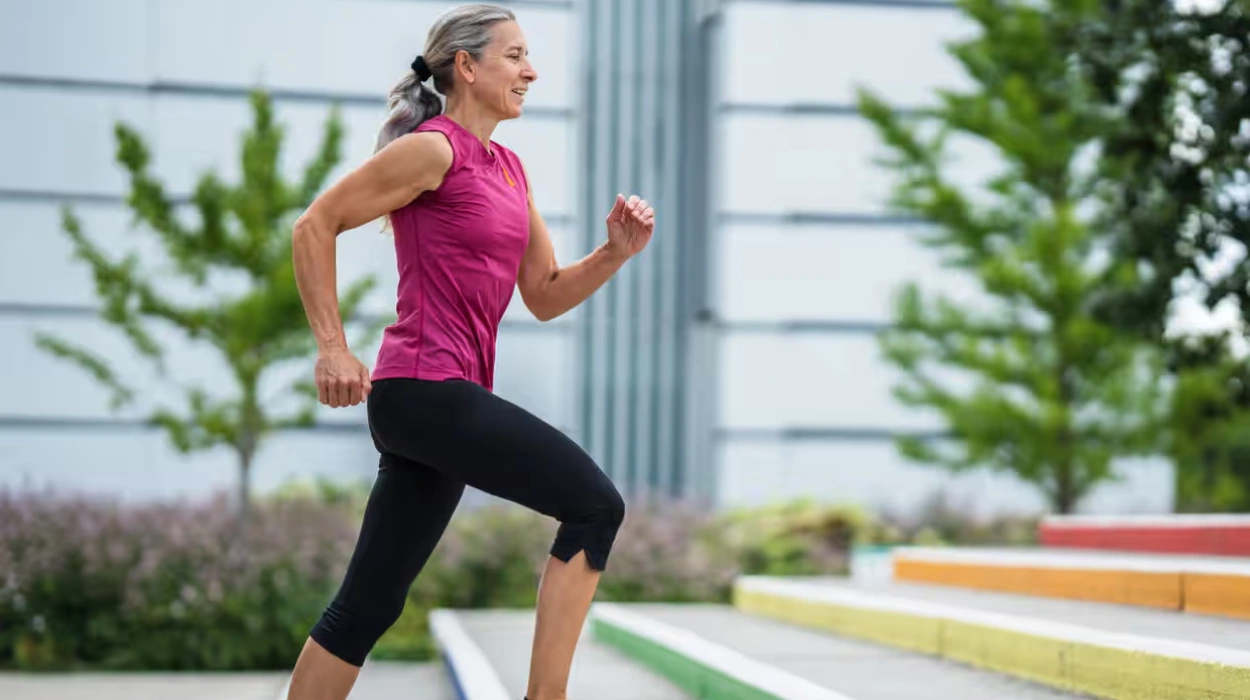UK (Parliament Politics Magazine) – A new global study shows structured exercise post-treatment cuts cancer recurrence by 28% and death risk by 37%, offering more benefits than drugs.
As reported by The Guardian, a leading global trial finds exercise can reduce cancer death risk by a third and outperform drugs in preventing recurrence.
Doctors have long recommended healthy lifestyles to prevent cancer, but only now has evidence shown the impact of exercise after diagnosis.
What did a world-first trial reveal about beating cancer?
Researchers across six countries, including the US and the UK, revealed that post-treatment exercise plans can sharply reduce cancer deaths and recurrence.
The findings were revealed at the American Society of Clinical Oncology’s annual meeting, the world’s largest cancer conference. They were also published in the New England Journal of Medicine.
A breakthrough was made as new research showed exercise significantly reduces cancer recurrence and death risk, according to a leading oncologist.
The trial found that patients using a personal trainer after treatment experienced a 37% lower risk of death. They also had a 28% reduced chance of cancer returning or developing anew.
Between 2009 and 2023, 889 colon cancer patients joined the trial. About 90% had stage three cancer. Half joined a structured exercise program, while the rest got a lifestyle booklet.
What did Dr Julie Gralow say about exercise and cancer care?
The chief medical officer of ASCO, Dr Julie Gralow, who was not part of the ten-year study, described the findings as the “highest level of evidence” and said they would bring a “major shift in understanding the importance of encouraging physical activity during and after treatment.”
When asked about exercise and cancer outcomes, she said,
“We titled [the session it was presented in] As Good as a Drug. I would have retitled it Better than a Drug because you don’t have all the side effects.”
Ms Gralow stated,
“It’s the same magnitude of benefit of many drugs that get approved for this kind of magnitude of benefit – 28% decreased risk of occurrence, 37% decreased risk of death. Drugs get approved for less than that, and they’re expensive and they’re toxic.”
She said,
“When I started three decades ago it was still the era where we’d be gentle and say, don’t overdo yourself when you’re on chemo. We’ve reversed that. I would say [exercise is] better than a drug.”
What did Dr Christopher Booth say about exercise and cancer recovery?
The research main author, Dr Christopher Booth, of Queen’s University in Kingston, Canada, said,
“After completing surgery and chemotherapy, about 30% of patients with high-risk stage two and stage three colon cancer will eventually experience recurrence of their disease. As oncologists, one of the most common questions we get asked by patients is ‘What else can I do to improve my outcome?’”
She added,
“These results now provide us with a clear answer: an exercise programme that includes a personal trainer will reduce the risk of recurrent or new cancer, make you feel better and help you live longer.”
What did Prof Swanton say about exercise and cancer survival?
Prof Charles Swanton, chief clinician at Cancer Research UK, which funded the UK part of the study, stated,
“This fascinating study captures the power of exercise to transform people’s health and boost their chances of surviving cancer after treatment. For an intervention that isn’t a drug, exercise offers remarkable benefits for patients.”
He added, for some patients, “physical activity can be a game-changer that shifts the course of their recovery. The findings suggest that oncologists should consider recommending a structured exercise programme after surgery to improve people’s chances of survival.”
Mr Swanton said,
“But it’s important to remember that exercise isn’t the best option for everyone. My advice to cancer patients is to speak to your doctor before taking on any new physical activity.”
What did NHS England’s medical director say about exercise and cancer survival?
Referring to the study results, Prof Sir Stephen Powis, the national medical director of NHS England, stated it was “really exciting” that personalized exercise after treatment might prove “life-changing.”
He said,
“These landmark findings suggest that focused steps to exercise, from walks to workouts, could help turbocharge the body’s ability to prevent cancer from returning after treatment and help save more lives.”
Mr Powis added,
“Being more active can have significant benefits in helping maintain a healthy weight, strengthen the immune system, reduce inflammation and lift mood – and it’s now really encouraging to see that exercise really could have the power to help more people survive cancer.”
Exercises to reduce cancer risk
Aerobic exercises
- Brisk walking (30+ mins/day)
- Cycling (moderate intensity)
- Swimming (low-impact, full-body)
- Jogging/Running (vigorous, boosts immunity)
Strength & resistance training
- Weight lifting (2x/week)
- Bodyweight exercises (push-ups, squats)
- Resistance bands (maintain muscle mass)
Flexibility & mind-body
- Yoga (reduces stress hormones)
- Tai Chi (improves balance, lowers inflammation)
- Pilates (core strength, post-surgery rehab)
High-Intensity Interval Training (HIIT)
- Short bursts (e.g., 30-sec sprints + 1-min walk)
- Improves metabolic health (linked to lower cancer risk)


